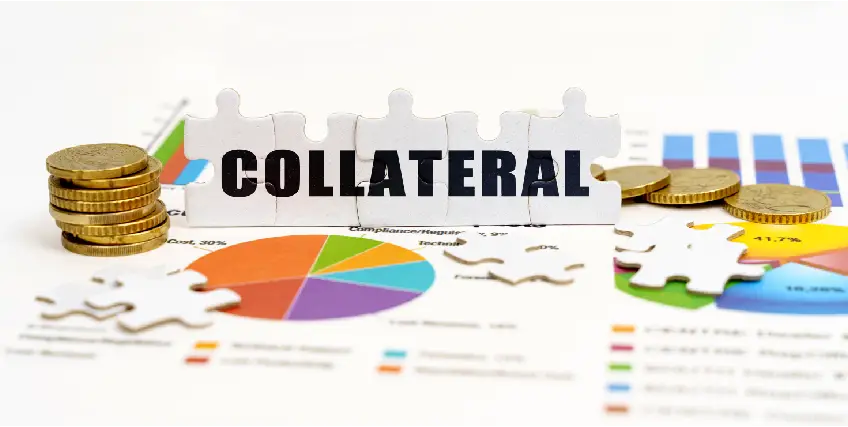Business Lending Rate Trends: What Entrepreneurs Should Watch This Year
July 25, 2025 | Last Updated on: July 25, 2025

Getting a business loan can be easy, but fulfilling its requirements can be challenging at times. The most difficult part is managing the repayment terms with interest rate, as business lending rate can vary with time.
It is necessary to understand the cost of a small business loan, so that you’re in a stronger position to select the right option and save as a business owner. In this article, you will learn about the business lending rate.
Will Interest Rates Go Down in 2025?
Policymakers anticipate that at least one cut could occur in the second half of 2025, with further cuts potentially forthcoming in 2026.
However, a lot depends on how things unfold with inflation, job market conditions, tariffs, and the overall economy in the coming months.
What is the Interest Rate on a Business Loan?
The interest rate on a business loan is usually based on how much a lender charges you for the funds you need. It is often expressed in the percentage of the loan you have borrowed, so the higher your business lending rate, the more money will be added to your original amount borrowed.
Typically, business lenders quote the interest rate as an annual percentage rate (APR). It illustrates the amount of money you will borrow over a year, which includes interest along with the fees (e.g., underwriting fees, origination fees, and closing costs). If you want to compare the business loan rates, you should do the same with APR.
It is not necessary that all lenders use the APR while quoting the cost of their product. There are lenders who also use:
- Weekly or monthly interest rate: Other short-term lenders charge interest on a weekly or monthly basis as a percentage of the outstanding principal balance. Although this is an accurate representation of your business lending rate, it does not take into account other loan charges, which can substantially add to your total cost of the loan.
- Factor rate: This is shared with merchant cash advance lenders and short-term lending. Although straightforward, this approach can have higher APRs than the current small business loan rates.
- Factoring charges: It is also referred to as discount fees; these are levied as a percentage of your outstanding invoice in invoice factoring. Rates typically range from 1% to 5% per month, which can increase significantly depending on the time between payments.
You should always try to calculate the business lending rate into an APR to get an idea of the loan cost. APRs also make it easier for you to compare the products from different lenders and ensure that you are signing the best deal for your business.
How to get the best business loan interest rate
If you want to get the best business lending rate on a business loan, you need to show your lender how much strength your business holds and prove to them that they can lend you the loan amount as you are a low-risk borrower. Borrowers who have strong finances, good credit, and years of experience in business usually have access to the lowest business lending rate.
Here are some tips to help you get the best rate for your business loan:
- Offer collateral: Securing your loan using assets like machinery or property can increase your chances of approval and reduce your average business loan interest rate. While required or not, offering collateral can be beneficial for startups or bad credit borrowers.
- Improve your credit: If you can improve your credit history, it can make you eligible for reduced business lending interest rates. Begin by reviewing your credit report for errors and disputing them. Additionally, as small business owners reduce existing debt and make payments more frequently. The higher your credit score, the better your rates will be and the longer your payment terms will be.
- Provide a comprehensive business plan: A well-prepared business plan can help lenders build confidence and secure the most favorable business lending rate. Highlight a good business model, an excellent market, and brief financial projections to demonstrate your repayment ability over the loan term.
- Add a cosigner: If your business is new or your credit is not perfect, including a cosigner with solid finances can enhance your opportunity of qualifying for more favorable terms on business term loans. Lenders will be more inclined to offer more favorable terms when there is greater financial security.
Is a small-business loan a fixed or variable interest rate?
A small business loan can have a fixed or a variable rate business lending rate. If it’s a fixed-rate loan, the interest rate, along with the monthly payment, won’t change throughout the life of the loan. This makes it easier to plan the repayments.
Lump sum term loans usually come with a fixed rate. This is best suited for both one-time business purchases and long-term financing requirements. This includes funding for business expansion, refinancing debt, and buying real estate.
Factors Affecting Business Lending Rate
Multiple factors impact the business lending rate you will receive on your business loan. It is essential to understand these factors and how you can effectively manage them. It will help you to qualify for the lowest interest rates:
- The lender: Conventional bank small-business loans tend to have the lowest business loan rates, but their conservative qualifying standards can be prohibitive. Online lenders, in contrast, qualify somewhat more leniently but are frequently more expensive.
- Your financial health: Lenders consider your credit score, business age, and cash flow. If you're a riskier borrower, you'll be charged a higher business lending rate.
- The type of loan: Interest rates tend to range widely based on the type of loan. The lowest rates tend to be found in loans guaranteed by the U.S. Small Business Administration (SBA).
- Your collateral: Placing your loan in collateral, such as inventory or real estate, can decrease your rate. Collateral reduces the risk for the lender because they can seize these assets if you don't meet your repayment obligations.
Conclusion
Understanding your business lending rate is the first step in securing the proper financing for your business. Whether it's term loans, lines of credit, or SBA-backed loans, you need to approach your funding alternatives carefully. Credit history, collateral, loan type, and lender all factor into your cost of borrowing.
By improving your financial standing and price shopping, you improve your chances of securing competitive rates that will fuel your business's success. Keep in mind that the correct loan is not merely a matter of approval, but more importantly, affordability and sustained success. Compare smartly, plan astutely, and lend confidently.
FAQs about business lending rates
What is a good interest rate on a business loan?
Your business loan rate depends on the type of loan, lender, and your business's qualifications, among other factors.
What do businesses do when interest rates are high?
Businesses consider raising capital with the help of equity instead of debt to avoid high-interest rates. They also explore options such as crowdfunding to raise funds from a large number of small investors. Peer-to-peer lending is also an option when it comes to non-traditional lending options, offering more favorable terms.
Is 8% interest high for a loan?
Although there is no strict definition for high-interest debt, many experts classify it as anything above the average interest rates for mortgages and student loans.
What are the 5 C's of business lending?
A practical method of enhancing one's chances for loan approval is to become acquainted with what is referred to as the "Five C's of Credit": character, capacity, capital, conditions, and collateral. This simple structure provides insight into what lenders consider when evaluating your application and can help you present a stronger, more convincing case for your loan request.
What are the five pillars of lending?
Lenders typically evaluate credit applications, both consumer and commercial, by assessing the "Five C's of Credit": character, capacity, capital, collateral, and conditions. The classic framework allows financial institutions to evaluate the overall quality and soundness of an applicant. By examining each of these factors, lenders can gauge a borrower's creditworthiness and make more informed loan decisions.
Frequent searches leading to this page
Related Articles
The Big Bank vs. Online Lender Showdown: Finding the Best Place to Get a Small Business Loan
January 30, 2026
Removing Confusion: A Simple Guide to the Steps Applying for a Secured Business Loan
January 30, 2026
Beyond Debt: 3 Sources of New Business Financing That Don't Require Repayment
January 28, 2026
Term Loans are made by Itria Ventures LLC or Cross River Bank, Member FDIC. This is not a deposit product. California residents: Itria Ventures LLC is licensed by the Department of Financial Protection and Innovation. Loans are made or arranged pursuant to California Financing Law License # 60DBO-35839




